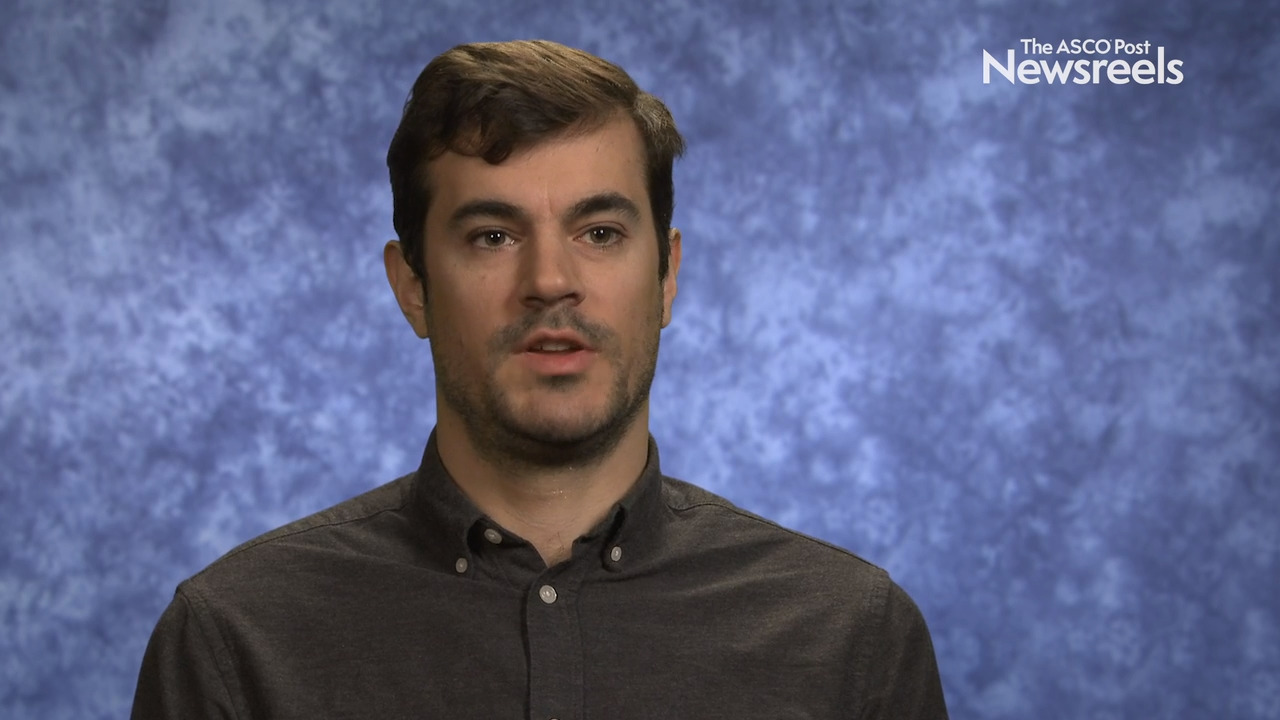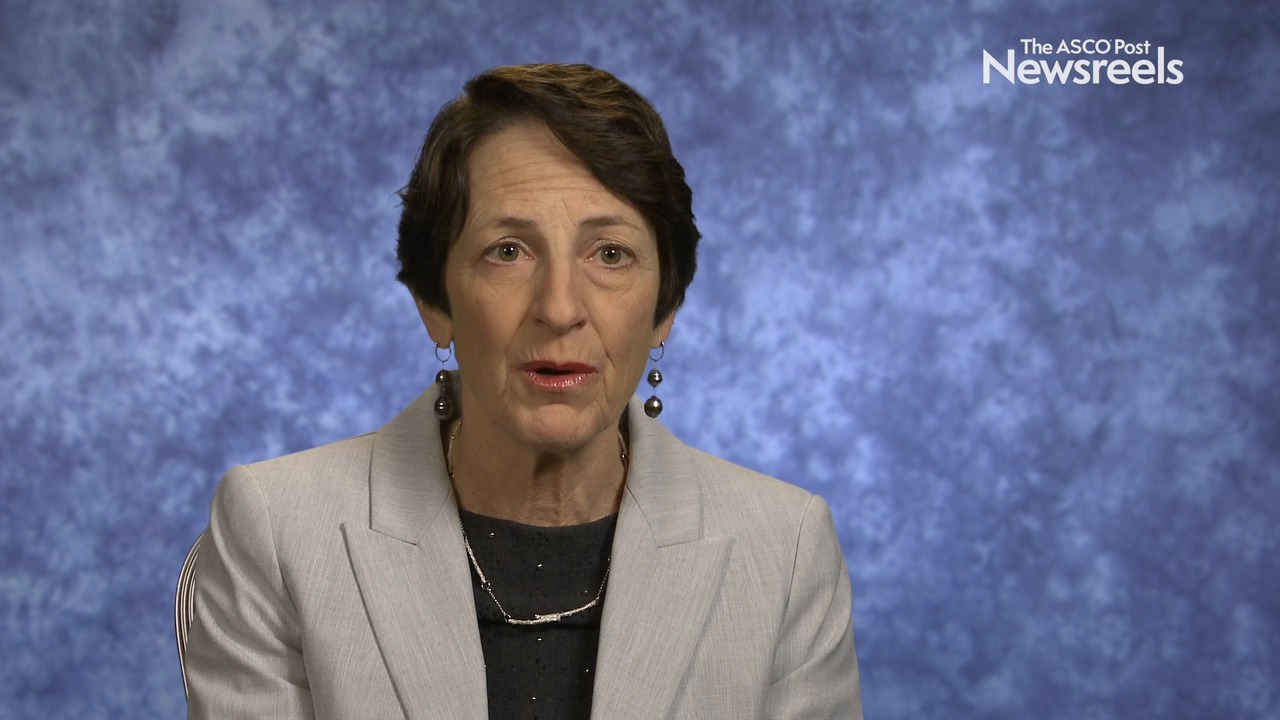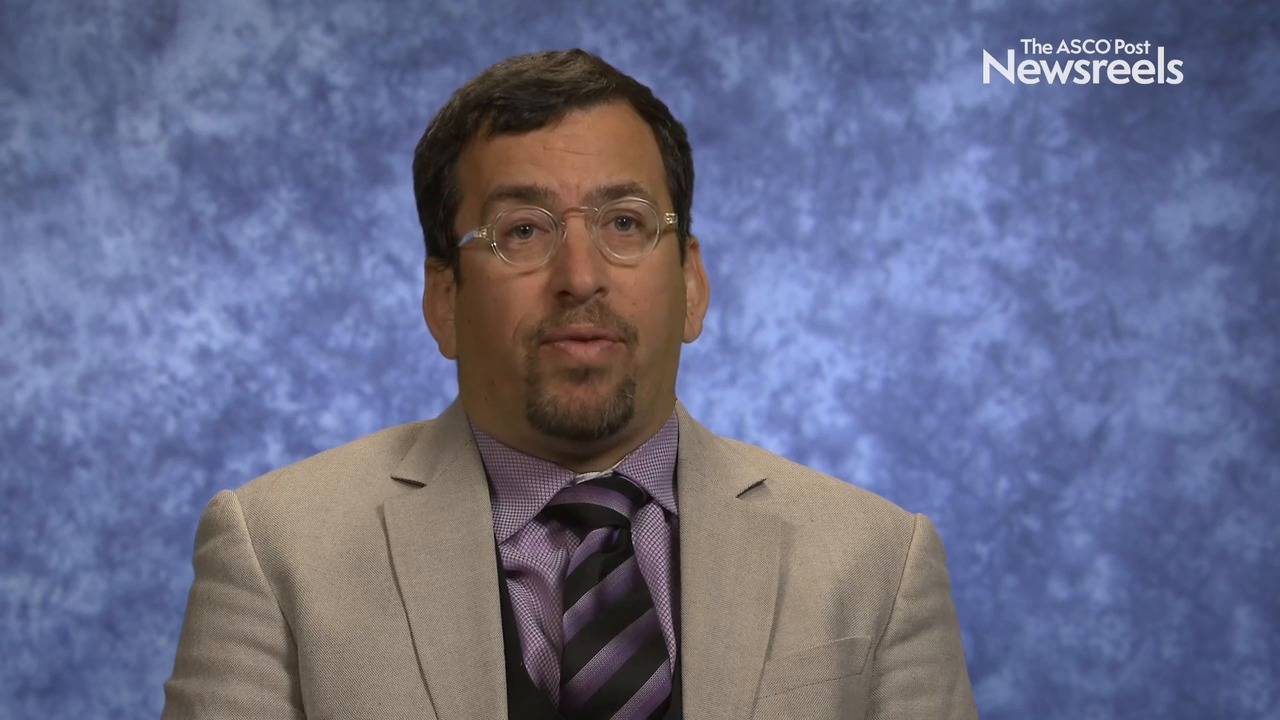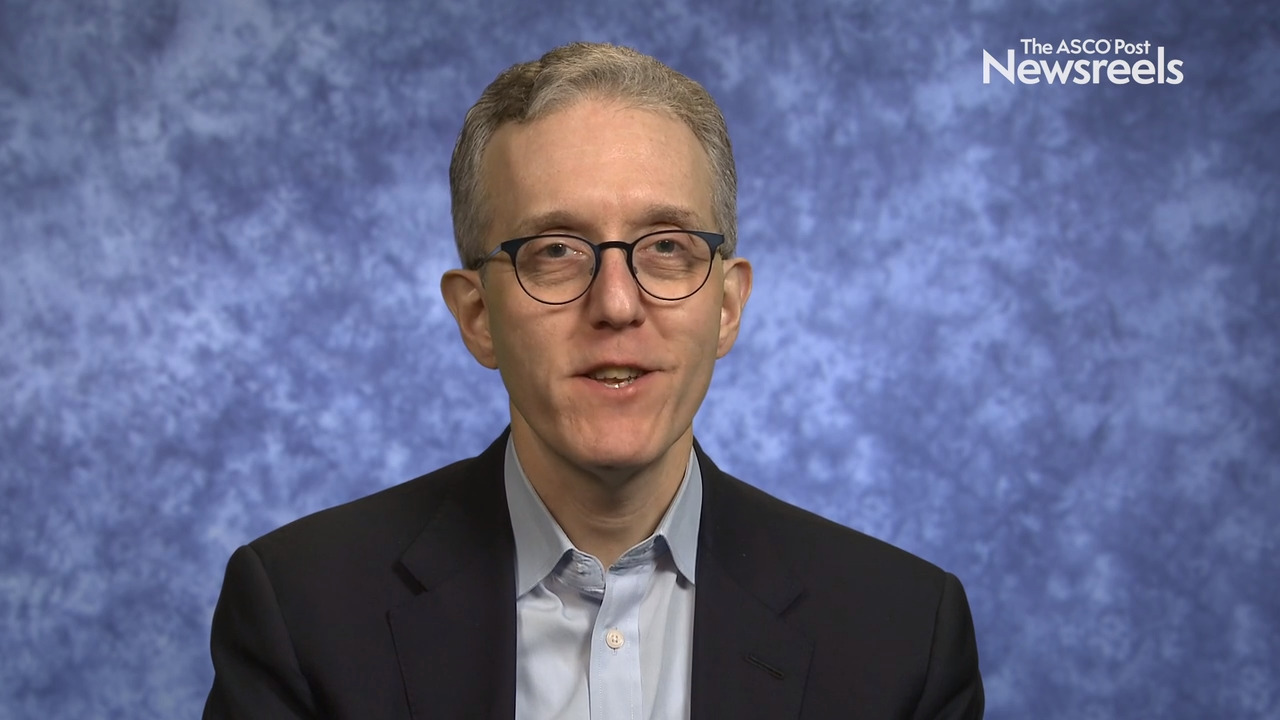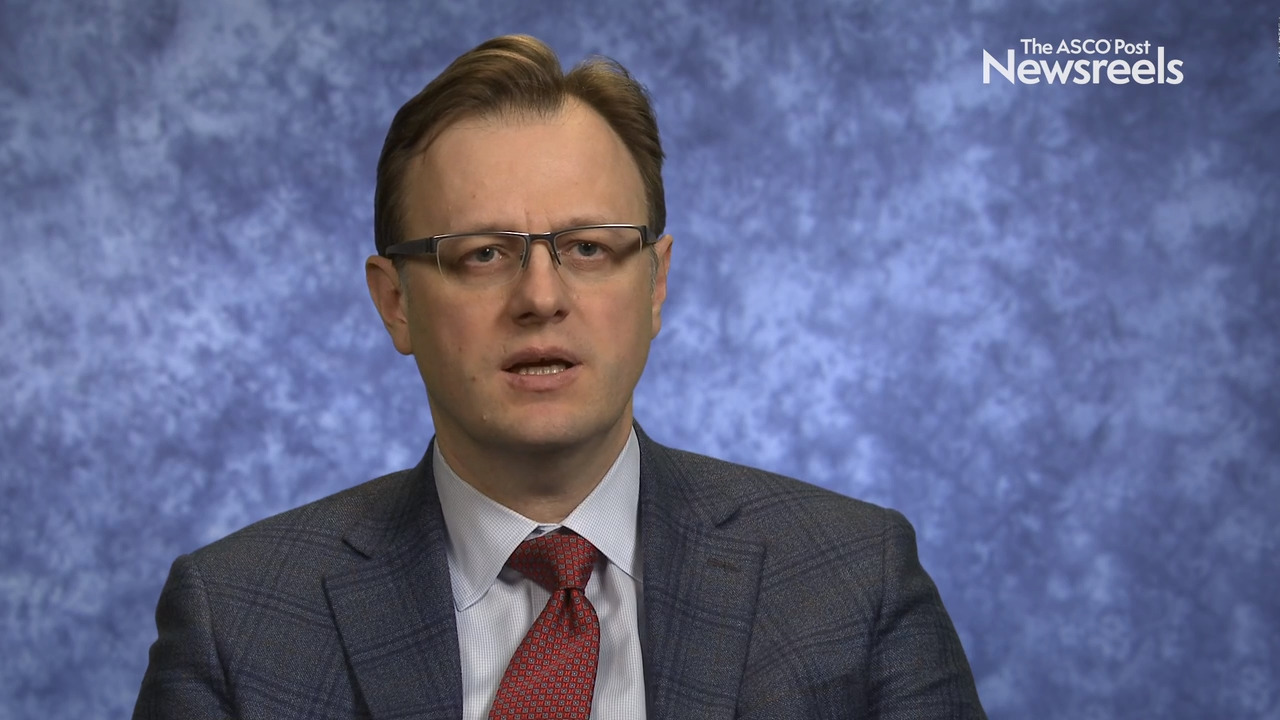Toni K. Choueiri, MD, and Ziad Bakouny, MD, on Renal Cell Carcinoma: Next-Generation Immuno-oncology Therapies
2019 ASCO-SITC Clinical Immuno-Oncology Symposium
Toni K. Choueiri, MD, and Ziad Bakouny, MD, both of Dana-Farber Cancer Institute, talk about novel cytokines, checkpoint inhibitors, and vaccines in the treatment pipeline for renal cell carcinoma.
Nicolas Guibert, MD, PhD, of Toulouse University Hospital, discusses a simple algorithm built to predict durable outcomes of patients with advanced non–small cell lung cancer that has been treated with immunotherapy. He notes that early changes in circulating tumor DNA burden may also predict sustained responses to PD-1 inhibitors (Abstract 103).
Kim A. Margolin, MD, of City of Hope, summarizes a session she co-chaired on combination immunotherapies, locoregional therapies, systemic therapies, and enhancing natural killer cells.
Edward B. Garon, MD, of the Olive View–UCLA Medical Center, discusses phase IIIb/IV study findings on reducing the frequency of nivolumab dosing, from 480 mg every 4 weeks to 240 mg every 2 weeks, in patients with previously treated advanced non–small cell lung cancer (Abstract 100).
Jedd D. Wolchok, MD, PhD, of Memorial Sloan Kettering Cancer Center, discusses the data to date on checkpoint blockades and the rationale for combination therapies and novel agents.
Stefan O. Ciurea, MD, of The University of Texas MD Anderson Cancer Center, discusses the enhanced antitumor effect and lower viral reactivation that result from high doses of natural killer cells infused after haploidentical transplantation, with no excess graft-vs-host disease, a low relapse rate for high-risk acute myeloblastic leukemia, and a low incidence of viral reactivation (Abstract 74).
